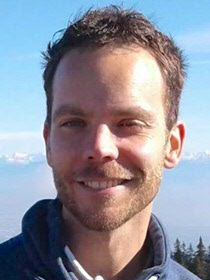Tessa Quax and Casper van der Kooi receive Human Frontier Science Program grant
Prof. Tessa Quax and Dr. Casper van der Kooi have recently been awarded a Human Frontier Science Program (HFSP) grant. Quax receives an HFSP Early Career Research Grant worth $1.5 million for the project ‘Unraveling the multi-layer relationship between archaeal symbionts and their viruses’. Van der Kooi receives an HFSP Program Grant worth $1.2 million for his project ‘Shiny signaling: the production, detection and neurobiological processing of brilliant colours’. Both researchers are coordinator of the projects.
HFSP grants provide three years of support for international teams involving at least two countries. Preference is given to intercontinental collaborations. Early Career Grants are for applicants within five years of establishing their independent research group and no more than ten years from their doctoral degree. Program Grants appeal to the innovative and creative potential of the research teams.

Prof. Tessa Quax | HFSP Early Career Research Grant
Project: Unraveling the multi-layer relationship between archaeal symbionts and their viruses
Tessa Quax, researcher at the Groningen Biomolecular Sciences and Biotechnology Institute (GBB), will conduct research into viruses that infect microorganisms called archaea. The archaea for this project were isolated from hot springs in Japan, where they live in symbiosis with their partner archaea at temperatures of ~80 ° Celsius. In symbiosis means that both need each other to grow. These archaea are related to the first cellular life on Earth and are considered the ancestors of humans, plants and animals. Like humans, these microorganisms can also be infected by special viruses. In this project, together with partners from Japan, Australia and the US, the effect of virus infection on symbiosis is being investigated. This is important to understand the functioning of symbiotic microorganisms in different food chains and ecosystems.

Dr. Casper van der Kooi | HFSP Program Grant
Project: Shiny signaling: the production, detection and neurobiological processing of brilliant colours
Casper van der Kooi is a researcher at the Groningen Institute for Evolutionary Life Sciences (GELIFES). His project will investigate the role of shiny visual effects for the visibility of flowers and butterflies. The majority of species are characterized by matte coloration. Their visual appearance is constant, regardless of the angle of observation. However, numerous species, such as butterflies, beetles and buttercups, have evolved shiny coloration. Such shiny visual effects are particularly prominent in the sun. The many independent evolutionary origins of shiny colors (see picture 2 below) hint at a potentially adaptive significance of shininess. What are the optical mechanisms of shiny colors, how are flashy visual effects processed by the observer’s visual system, and how does shininess determine an object’s visibility to potential partners or flower-visiting insects? This project will investigate the optical properties of shiny flowers and animals, study how flashy visual effects are processed by the insect brain (with Prof. Kinoshita, Japan), and determine the ecological relevance of shininess in the wild (with Prof. Kemp, Australia).
Human Frontier Science Program
The Human Frontier Science Program is a program of funding for frontier research in the life sciences. It is implemented by the International Human Frontier Science Program Organization (HFSPO) with its office in Strasbourg.


More news
-
27 January 2026
ERC Proof of Concept grant for Maria Loi
-
26 January 2026
Science for Society | The AI chip of the future
